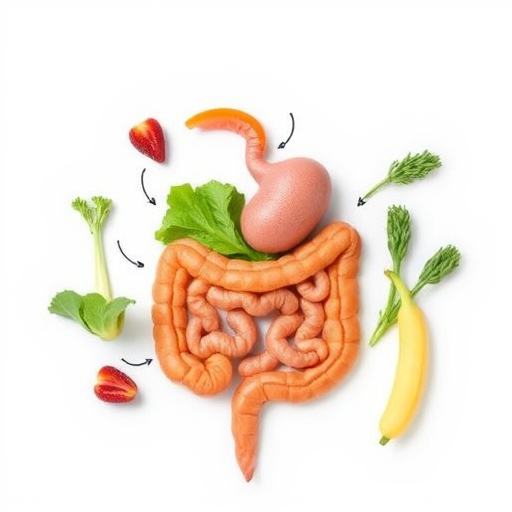The connection between diet, gut health, and mental health has become an area of increasing interest and research in recent years. Known as the gut-brain axis, this is the biochemical signaling that takes place between the gut and the brain, linking the digestive system to cognitive and emotional health. Here’s a closer look at how a healthy gut can positively impact mental health, and why diet plays such a crucial role in this connection:
1. The Gut Microbiome and Mental Health
The gut is home to trillions of bacteria, fungi, viruses, and other microorganisms collectively known as the gut microbiome. These microbes play a critical role in digesting food, producing essential vitamins, and regulating the immune system. More importantly, they also influence brain function and behavior.
- Why it matters: The gut microbiome produces a variety of chemicals and neurotransmitters, such as serotonin, the “feel-good” hormone, which is known to play a role in mood regulation. In fact, about 90% of the body’s serotonin is produced in the gut, which is why a healthy gut is essential for maintaining emotional balance and mental well-being.
2. Inflammation and Mental Health
Chronic low-grade inflammation in the body has been linked to several mental health disorders, including depression, anxiety, and even neurodegenerative diseases like Alzheimer’s. A disrupted or imbalanced gut microbiome can contribute to this inflammation by promoting the release of pro-inflammatory substances.
- Why it matters: A healthy gut, supported by a balanced diet, helps regulate inflammation, which in turn may help reduce the risk or severity of mental health conditions. Foods that are high in antioxidants and anti-inflammatory compounds—like fruits, vegetables, nuts, and seeds—help support a healthier gut and may mitigate inflammation’s negative effects on the brain.
3. Gut Health and Stress Response
The gut-brain axis also plays a role in how the body responds to stress. When the gut microbiome is disrupted, it can alter the stress response, potentially leading to heightened anxiety or depression. On the other hand, a healthy gut microbiome helps regulate the body’s production of stress hormones like cortisol, leading to better emotional resilience.
- Why it matters: A balanced gut microbiome can improve the body’s ability to handle stress, reducing the likelihood of developing chronic stress or mental health issues such as anxiety. Foods that promote gut health—such as fiber-rich vegetables and fermented foods—can help maintain this balance.
4. The Role of Diet in Gut Health
Diet plays a key role in maintaining a healthy gut microbiome. A diet rich in fiber, prebiotics, probiotics, and fermented foods can help nourish beneficial gut bacteria, improving digestion and supporting mental health.
- Why it matters: Prebiotics (found in foods like onions, garlic, and bananas) provide food for beneficial gut bacteria, while probiotics (found in fermented foods like yogurt, kefir, and sauerkraut) introduce beneficial bacteria into the gut. A diet rich in these nutrients supports gut health, which in turn promotes mental well-being.
5. Foods That Support Gut and Mental Health
Here are some foods that are particularly beneficial for gut and mental health:
- Fermented foods (e.g., kimchi, sauerkraut, yogurt, kefir, miso): Rich in probiotics, these foods help introduce beneficial bacteria to the gut, promoting a healthy microbiome.
- Fiber-rich foods (e.g., whole grains, fruits, vegetables, legumes): Fiber acts as food for beneficial gut bacteria, helping to improve digestion and gut function.
- Omega-3 fatty acids (e.g., fatty fish like salmon, walnuts, flaxseeds): Omega-3s have anti-inflammatory properties and are known to support brain health and improve mood.
- Polyphenol-rich foods (e.g., berries, dark chocolate, green tea): These foods contain antioxidants that help reduce inflammation and promote gut health.
- Why it matters: Including a variety of these foods in your diet can improve gut microbiome diversity, which is associated with better mental health outcomes, including reduced anxiety and depression.
6. Gut Health and Anxiety
Recent research has shown that gut health is closely linked to anxiety. The gut microbiome can influence the production of neurotransmitters that regulate mood, including GABA (gamma-aminobutyric acid), which is a neurotransmitter that helps control anxiety. An imbalance in the gut microbiome may lead to disruptions in GABA production, potentially contributing to anxiety disorders.
- Why it matters: Maintaining a balanced gut microbiome through diet and lifestyle can help regulate the production of neurotransmitters like GABA, which may help reduce anxiety. Foods that support gut health, such as fermented foods and fiber-rich vegetables, can play a key role in this process.
7. Gut Health and Depression
Emerging research suggests that the gut microbiome may influence the development of depression. Studies have found that individuals with depression often have different gut microbiota profiles than those without depression. In particular, an imbalance in the gut bacteria can lead to increased inflammation and disruptions in the production of key mood-regulating neurotransmitters, such as serotonin.
- Why it matters: A healthy gut microbiome, supported by a balanced diet, may reduce the symptoms of depression by promoting the production of serotonin and reducing inflammation. Incorporating mood-boosting foods like omega-3 fatty acids, fermented foods, and polyphenol-rich foods into your diet can support mental health.
8. The Importance of Gut-Healthy Habits
In addition to diet, certain lifestyle factors can help maintain a healthy gut and improve mental health. Regular physical activity, adequate sleep, stress management techniques (like mindfulness or yoga), and reducing the intake of processed foods all contribute to a healthier gut microbiome.
- Why it matters: A holistic approach to gut health—one that combines a nutrient-dense diet with healthy lifestyle practices—can promote mental well-being by maintaining a balanced gut microbiome. Exercise and sleep, in particular, have been shown to positively influence both gut health and mental health.
9. The Impact of Processed Foods on Gut and Mental Health
Diets high in processed foods, added sugars, and unhealthy fats have been linked to poor gut health and an increased risk of mental health disorders, such as depression and anxiety. These foods can negatively affect the diversity of the gut microbiome, disrupt the balance of good bacteria, and promote inflammation.
- Why it matters: Reducing the intake of processed foods and replacing them with nutrient-dense, whole foods can help maintain a healthy gut, which in turn can positively affect mental health. Focusing on a diet rich in whole grains, fruits, vegetables, and healthy fats can promote both gut health and emotional balance.





